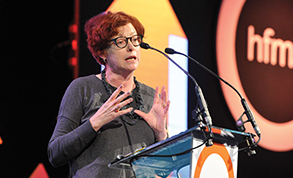Health and care reaction: funding welcome but inadequate
The government announced an additional £36bn for health and social care over the next three years, which includes £5.4bn for social care and almost £16bn in frontline NHS funding. The NHS allocation will include around £9bn to tackle waiting list backlogs, and £500m to increase operating theatre capacity, productivity, and the adoption of technology.
NHS chief executive Amanda Pritchard said it was right to back NHS staff, who have worked tirelessly throughout the pandemic. ‘The pandemic is still with us and we will have to live with the impact of Covid for some time, so the additional funding will help meet those additional costs, and give the NHS clarity for the coming years while delivering millions more of the vital checks, tests and operations that patients need.’
Labour leader Keir Starmer called the plan a ‘sticking plaster’ and questioned whether the extra funds would clear the elective backlog in the NHS.
 While the NHS is due to see the biggest share of the new funding initially, there have been suggestions that social care would become the main beneficiary in later years. However, there have been conflicting reports on this last point from ministers. Commentators have pointed out that it will be difficult to remove funding from the NHS.
While the NHS is due to see the biggest share of the new funding initially, there have been suggestions that social care would become the main beneficiary in later years. However, there have been conflicting reports on this last point from ministers. Commentators have pointed out that it will be difficult to remove funding from the NHS.
Many commentators said the funding was inadequate. Anita Charlesworth (pictured), Health Foundation director of research and the Real Centre, said that, even with the additional funding for health, it was likely that waiting lists would be longer by the end of this Parliament than they are now.
She continued: ‘To meet the 18-week standard by 2024/25 would have required closer to £17bn over this Parliament. But money is far from the only challenge. The extra staff, beds and equipment needed to treat so many more patients in the coming years are likely to be the biggest hurdles to recovery. Given the lead times for training staff, targeted investment in the workforce is needed now. Otherwise, waiting lists are likely to remain very high for many years to come.
The extra NHS funding was ‘not sufficient for an ambitious recovery programme’.
‘If Covid-19 continues to require enhanced infection control beyond this year, there is a real risk that the NHS will be forced to make very hard trade-offs between tackling the elective care backlog and delivering on the planned investment to improve primary, community and mental health services, while delivering services that are safe for patients and staff,’ Ms Charlesworth said.
In a joint statement, the NHS Confederation and NHS Providers agreed that frontline health and care leaders now face ‘impossible choices’. Matthew Taylor, NHS Confederation chief executive and Saffron Cordery, deputy chief executive of NHS Providers, said: ‘No-one should be in any doubt that this extra funding is welcome. But the government promised to give the NHS whatever it needed to deal with the pandemic, and, while it makes a start on tackling backlogs, this announcement unfortunately hasn’t gone nearly far enough. Health and care leaders are now faced with an impossible set of choices about where and how to prioritise care for patients.
‘The health and social care secretary Savid Javid has already warned that the 5.5 million waiting list could spiral to 13 million, and this funding shortfall means the threat of long delays will remain.
‘NHS leaders have unfortunately become accustomed to having less money than the service needs. But the size of the funding gap remains daunting and will significantly impact the kind of care that the NHS can provide to the public in the months and years ahead.’
10% capacity boost
The Institute for Fiscal Studies published an analysis of the government announcement, which includes a look at the effect on waiting lists. It estimated that if the NHS could boost capacity by 10% above the NHS long-term plan assumptions, this should return waiting lists to pre-Covid levels within three or four years. But, even with the additional funding, boosting capacity by this much would be difficult due to longstanding staff shortages and the potential need for ongoing infection control.

There was much disappointment at the funding for social care. National Care Forum chief executive Vic Rayner (pictured) said: ‘Prioritising the funding of the NHS backlog over social care suggests that the interdependencies between the two bits of the system are still not fully grasped. It cannot be that only £5.4bn of the estimated £36bn will go to social care, especially when it is clear that social care needs an additional £7bn now to keep going, as determined by the health and care select committee among others.’
The British Medical Association said annual funding of £12bn was its estimate of the amount needed for social care alone. BMA leader Chaand Nagpaul said: ‘“Currently gaps in the care available to people mean that the most vulnerable patients – often elderly and living with multiple long-term conditions – are more are risk of seeing their health worsening and requiring care in the NHS.
‘It’s extremely important that there is also additional funding on top of this to ensure equitable and better access to care, by providing more services free at the point of need. Widening access to care services can reduce the need for costly long-term care services and NHS care.’
The cap on lifetime social care payments would not meet the prime minister’s promise to ‘fix social care once and for all’, according to the Health Foundation’s Anita Charlesworth. She added: ‘The government has parked decisions on wider funding and reform – much now rests on the forthcoming autumn spending review. In addition to the cost of the cap, further funding increases, rising to an extra £9.3bn in 2024/25, will be needed to support the growing number of people going without the care they need, raise care quality, stabilise the provider market and improve the pay and conditions of those working in the sector.’
Stephen Chandler, president of the Association of Directors of Adult Social Services (ADASS), said: ‘We have waited a quarter of a century for a government to deliver on the promise of sustainable funding and reform of adult social care. This welcome announcement feels like a significant step forward and we hope that this will be the start of a new chapter for those of us with care and support needs, or who care for family members who do.
‘We are keen to look at the detail, but we hope that this package of measures can begin to help us to tackle the many challenges we face today, whilst transforming care and support for the future.’
However, an ADASS snap survey highlighted growing requests for social care, and lengthening waiting lists, together with delays in statutory reviews of existing care and support plans. Mr Chandler added: ‘Having heard the government's initial thinking about the longer-term future, this survey is a stark reminder of why we need investment in care and support now.
‘It is neither fair nor acceptable that people are waiting longer and getting less care. People need care and support to live a good life now. They cannot, and should not be made to wait.’
The IFS said the social care funding would not be enough to fully reverse the cuts in numbers receiving social care in the 2010s., IFS research economist Kate Ogden said: ‘The government has finally announced the main elements of its long-term plan for adult social care. These will provide more insurance for those facing the highest care costs, and a more generous means-test. More funding is also confirmed for the medium-term too. But this follows on from big cuts in spending and hence service provision during the 2010s – which the new funding will be insufficient to fully address.’
The HFMA has produced a summary of Build back better: our plan for health and social care.
Related content
The value masterclass shares examples of organisations and systems that have pursued a value-driven approach and the results they have achieved.
This webinar series offers colleagues of ICS organisations the opportunity to discuss common priorities, challenges, and successes within their field.